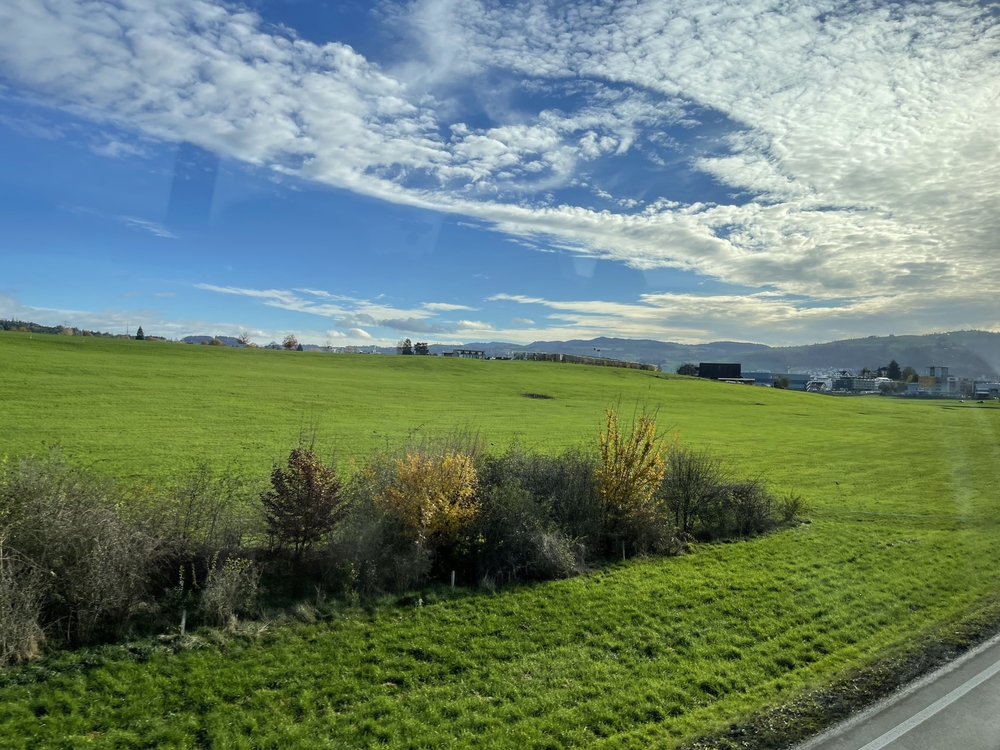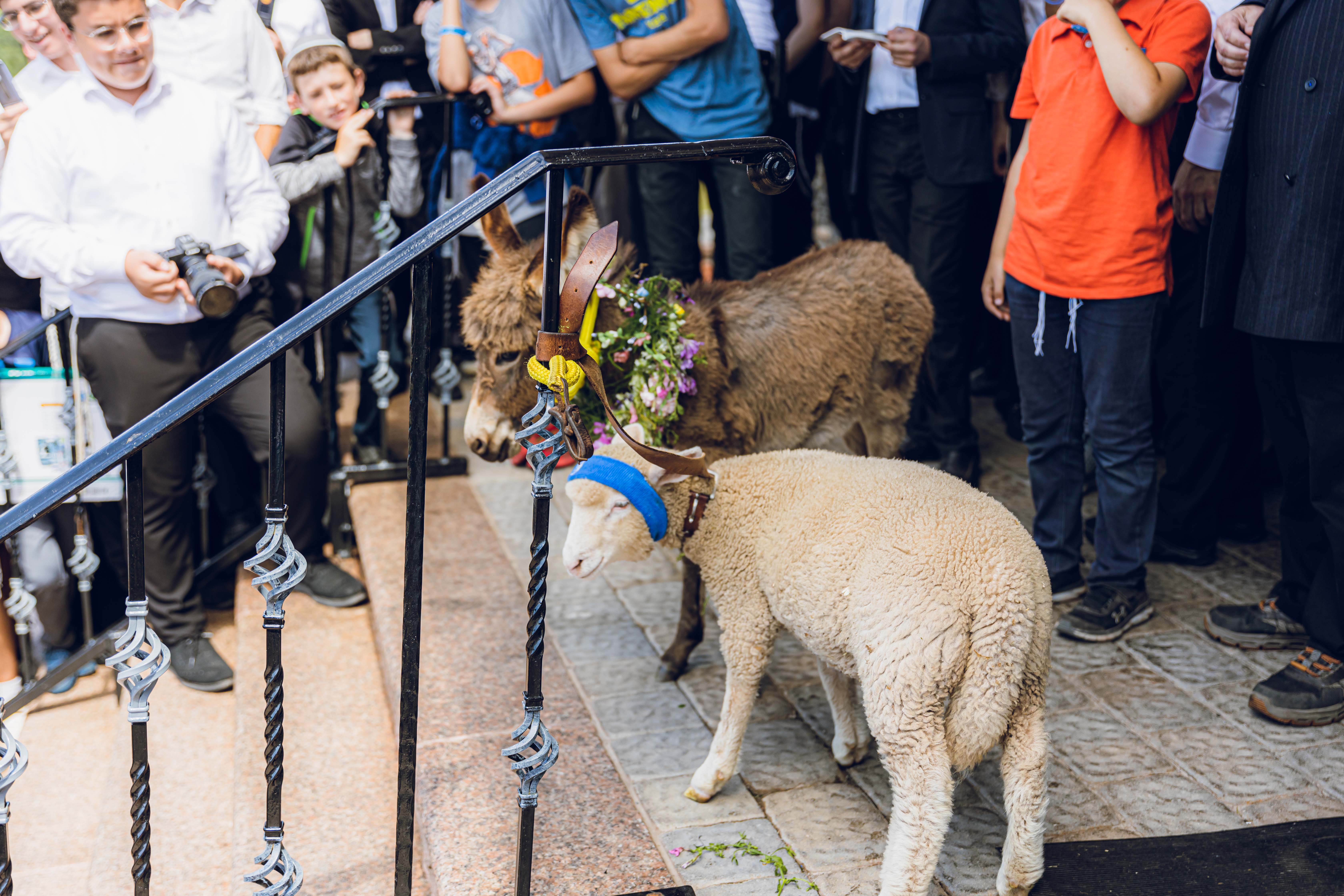Introduction
The horrific Har Nof Massacre that took place in Israel, in November of 2014, shook the Jewish world to its core. Two terrorists invaded a synagogue as the men prayed the Morning Prayers. Armed with hatchets, meat cleavers, and guns, the terrorists murdered four pious Jewish men and wounded another, who died a year later. They also killed a Druze security guard who ran into the fray to stop them. The news media carried horrifying pictures of blood-soaked siddurim (prayer books) and talleitim (prayer shawls) lying on the floor. Six families were left without their fathers and husbands. Following this event, Rabbi Mintz received many questions regarding the meaning of evil and tragedy in the world. His responses are combined in the questions and answers below.
A Terrorist Attack in the Middle of Davening?!
Doesn’t God love righteous people? Why would He allow such terrible things to happen to good people — especially while they are in the midst of doing righteous deeds, such as praying to Him?
Rabbi Chaim Mintz responds:
A Purpose in Everything
Yes, this was a horrific tragedy! Even so, there have been tragedies of far greater proportions, such as the Inquisition, the Holocaust, and the many pogroms throughout our long and bitter exile. We have come to realize that we don’t understand Hashem’s (God’s) ways, and we accept these events as His will. But, at the same time it is wrong to just sit back and say that we do not understand His ways.
We must appreciate that such events are a message from God. The more violent the event, the louder the message. We must realize that there is an urgent message being sent to the entire Jewish nation, and we must be wise enough to hear the message, and ensure that it was not sent in vain.
We Must Grow!
The middat hadin: When the Jewish people are not living up to the standard God expects of them, the middat hadin — God’s attribute of strict judgment — is aroused. The writings of the prophets record many incidents in which Jews strayed from the ways of the Torah and were then attacked by neighboring nations, causing much loss of life and pain. These attacks were sent by God to stop the Jewish people from continuing in the wrong direction. As soon as the Jews got the message and returned to the ways of the Torah, their enemies were defeated, and life returned to normal. While these are painful and frightening events, we must constantly remember that Hashem’s strict judgment is really a form of kindness, because it prevents us from falling to a level so low that it becomes extremely difficult to redeem ourselves. Hashem’s punishments are like a painful surgery that cures a deadly disease. Thus, if we heed the message and better ourselves, we will ensure that those who died in the Har Nof massacre and throughout Jewish history did not die in vain.
In short: These events are meant as an urgent message from God. We must hear the message, and ensure that it was not sent in vain.
A Call to Arms
How can we just allow such terrorism and sit by idly? Shouldn’t we be more prepared and make a call to arms?
Rabbi Chaim Mintz responds:
The Natural Response
Once again, this reaction is so common, but unfortunately not the point we are meant to focus on. The natural human response to physical attack is to fight back. While it is true that we are required to protect ourselves against danger as best as we can, we must never forget that danger will not come to us in the first place unless it is God’s will that it should.
The Supernatural Response
We therefore have to focus on what we can do to improve our relationship with Him, because as long as He sees the need to awaken us in this way, no amount of security will help. This concept was already stated by King David, who declared (Tehillim 127:1): “If Hashem will not guard the city, in vain is the watchman vigilant.” Many people unfortunately have a shallow view, and the “lesson” they take from this tragedy is that we need to tighten security and deliver stricter punishment to terrorists. But what we really need to do is strengthen our connection to the ultimate Protector, Who can and will provide the best security.
In short: While we are required to protect ourselves against danger, our focus should be on strengthening our connection to the ultimate Protector.
How to Comfort the Mourners
The four widows of the men who died on the day of the attack, along with their many children, drew a nonstop flow of people throughout Israel who were deeply moved to do the mitzvah of comforting mourners. But what could anyone possibly say that would serve to actually comfort the mourners?
Rabbi Chaim Mintz responds:
Your Pain, My Pain, Our Healing
The most important message is not the one you deliver by speaking, but rather what you are saying by just being there. The mourners take comfort in knowing that they are not alone in their grief, since “a tragedy shared by others softens the blow.” In addition, each person’s presence is testimony to the unity of the Jewish people, making the mourners feel that the Jewish nation is carrying their burden with them. That is why many thousands of fellow Jews felt for their loss and were moved to travel to the mourners’ homes to express their sympathy.
I once went to visit a father who was sitting shivah for his child. I said to him, “I don’t have anything to tell you that you don’t already know. I’m sure you know that Hashem is just in His ways, and knows what He is doing! I am just here to share your pain.” He told me that these were the words he needed to hear, and they were the most comforting he had heard.
Just Cry with Them
Anything else we might think to say — any point of Jewish philosophy or faith — is quite often already known by Jews with a religious upbringing. They know that God is good and that we cannot always see His goodness in the events that happen in our lives. They know that the person who has passed away is going to a place of peace and pleasure and is not erased from existence. They are dealing with the loss of someone dear to them and the pain of knowing they will not see that person again in their lifetime, or until the coming of the Messiah. Since pain is eased by sharing it with others, merely having someone with whom to share their tears can be very comforting.
In short: Often, just by showing you care, you can bring a great deal of comfort to a mourner.
Have another question to ask a rabbi? You can ask Rabbi Mintz your own question at asktherabbi@oorah.org, or head to oorah.org/asktherabbi/ to watch the latest Q&As or join Ask the Rabbi Live, Tuesdays at 9PM ET.


